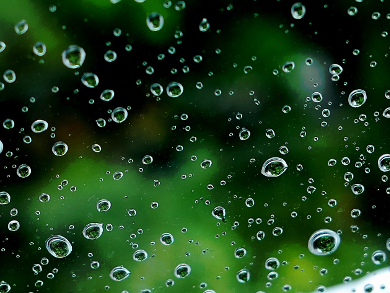Materials for self-cleaning surfaces should ideally preserve the properties of the original material, e.g., glass. At the same time, they need to introduce either superwetting (“water sheeting effect”) or antiwetting (“lotus effect”) properties to allow for self-cleaning. Self-cleaning glass, for example, is often coated with thin films of titania (TiO2). These films act as a photocatalyst to destroy organic dirt and cause a water sheeting effect that washes away remaining inorganic dust.
Bálint Náfrádi, Endre Horváth, Ecole Polytechnique Fédérale de Lausanne (EPFL), Switzerland, and colleagues have developed a simple and inexpensive method to coat glass with titania nanowires, which provide similar self-cleaning properties to TiO2 thin films at a much lower titania content. The team prepared a dispersion of titanate nanowires (H2Ti3O7), coated a glass surface with the dispersion, dried the samples and 150 °C, and finally converted the H2Ti3O7 nanowires to TiO2 nanowires at 400 °C in air. The surface coverage of the nanowires is about 55 %.
The modified glass retains a high transparency. The nanowire network on the surface shows photocatalytic activity, e.g., for the degradation of the dye methylene blue under UV light. The surface coating also has superwettable properties, with a water contact angle of only 12°. The researchers performed outdoor tests of the glass and found that the coatings are stable and provide a good self-cleaning effect.
- Superior Water Sheeting Effect on Photocatalytic Titania Nanowire Coated Glass,
Bálint Náfrádi, Gábor Náfrádi, Carole Martin-Hamka, László Forró, Endre Horváth,
Langmuir 2017.
DOI: 10.1021/acs.langmuir.7b01790




